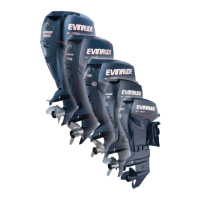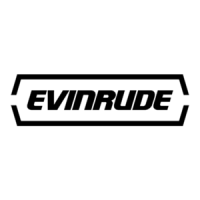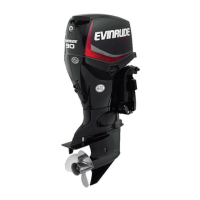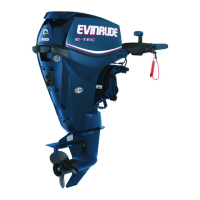59
INSTALLATION AND PREDELIVERY
FUEL AND OIL PRIMING
2
Fuel System Priming
Vent Line Clamp
In compliance with Federal Regulations, all out-
boards with a fuel vapor separator must be
shipped with a vent line clamp installed. This
clamp must be removed before priming the fuel
system or starting the outboard for the first time.
IMPORTANT: Failure to remove the clamp may
cause fuel starvation and poor running qualities.
Priming the Fuel System
Insert the fuel supply hose from the fuel tank into
a suitable container. Squeeze the fuel primer bulb
or activate the boat-mounted electric fuel primer
until fuel flows from the fuel hose.
Once fuel flow is observed, connect fuel supply
hose from fuel tank to hose fitting on outboard.
Secure hose with Oetiker clamp.
Use the primer to fill the vapor separator.
The high-pressure fuel circuits and injectors will
prime as the outboard is cranked with the starter.
Observe all fuel lines, both in the boat and on the
outboard. Repair any fuel leaks.
Oil Requirements
Evinrude/Johnson XD100, XD50, or XD30 out-
board oils are recommended for use in Evinrude
E-TEC outboards. If these oils are not available,
you must use a TC-W3 certified oil.
Evinrude/Johnson XD100 outboard oil is highly
recommended for all conditions and applications.
Engine Lubricant Below 32°F (0°C)
If the outboard will be operated in temperatures
below freezing (32°F, 0°C), use Evinrude/Johnson
XD100.
IMPORTANT: For new outboards, test low oil
warning before filling oil tank.
Turn key switch to ON. The engine monitor warn-
ing display should show “LOW OIL.”
Add enough oil to raise level to at least one-quar-
ter capacity.
The “LOW OIL” warning should not display.
IMPORTANT: Failure to follow these recom-
mendations could void the outboard warranty if a
lubrication-related failure occurs.
Refer to ENGINE MONITORING SYSTEM on
p. 101.
004963
WARNING
Fuel vapors are highly flammable. Perform
the following procedure in a well ventilated
area. Extinguish all smoking materials and
make certain no ignition sources are
present.
WARNING
Failure to check for fuel leaks could allow a
leak to go undetected, resulting in fire or
explosion and may cause personal injury
or property damage.
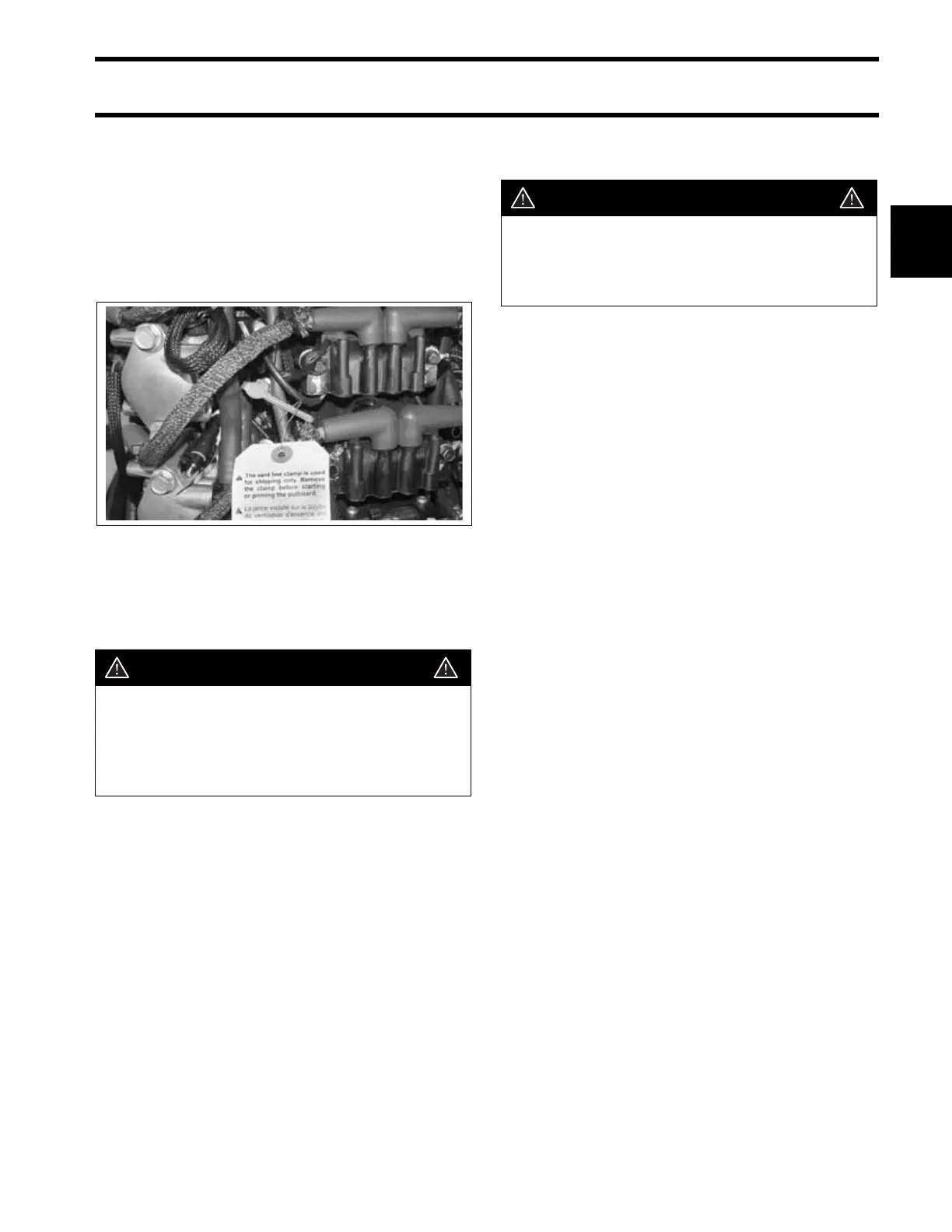